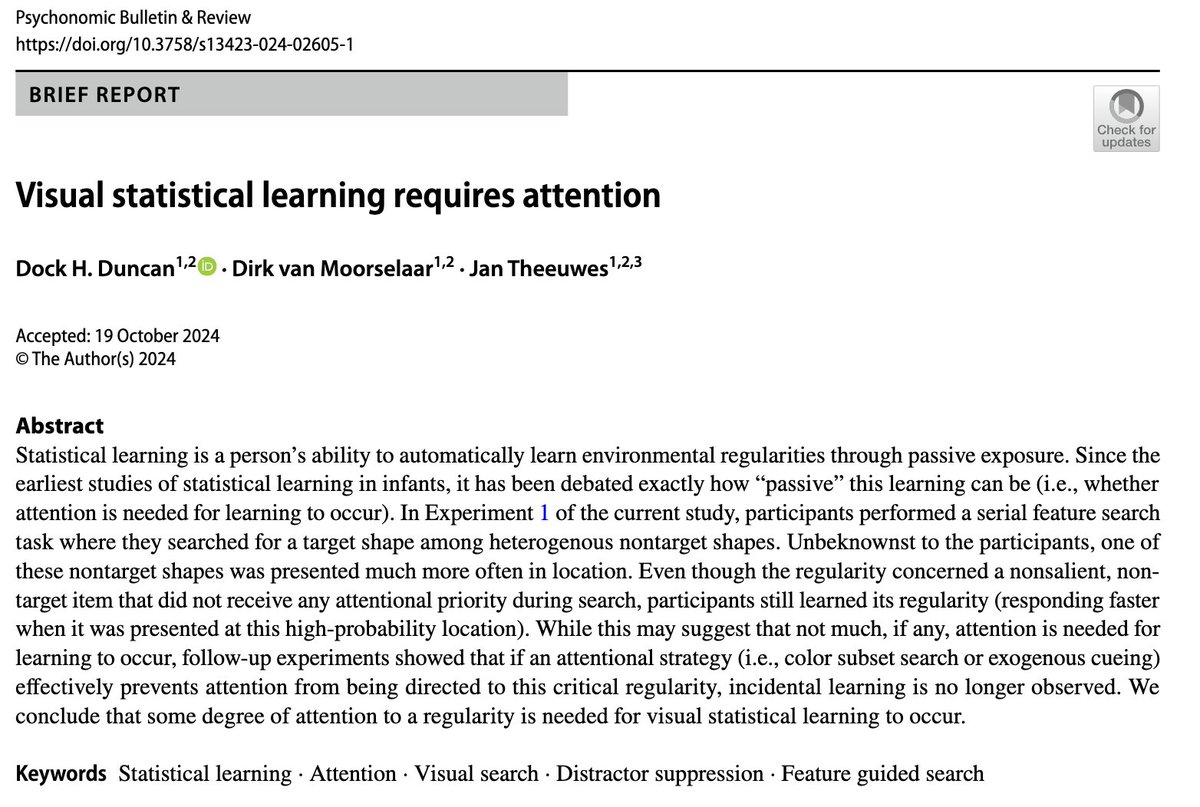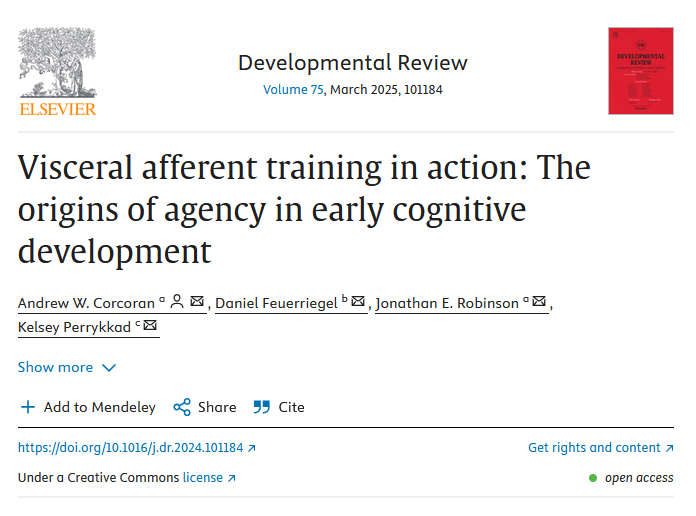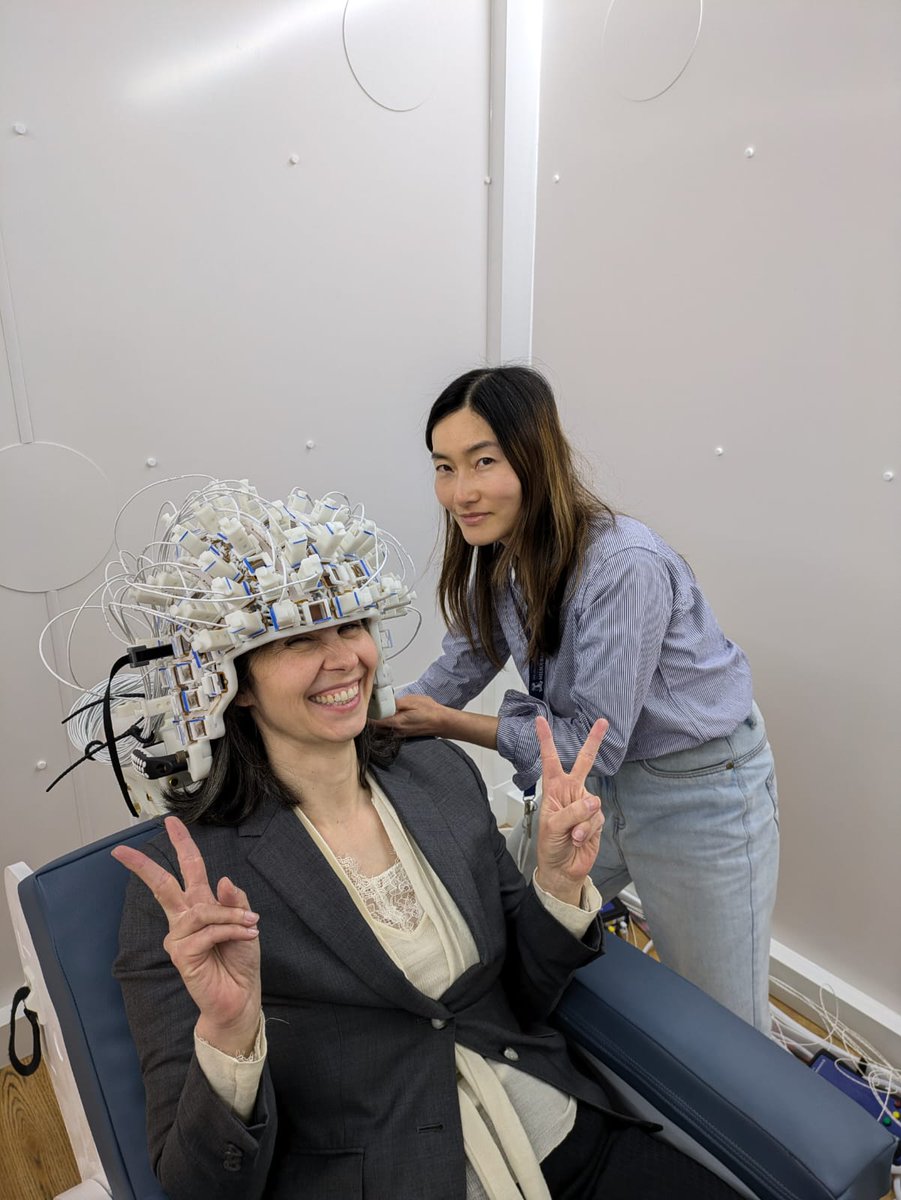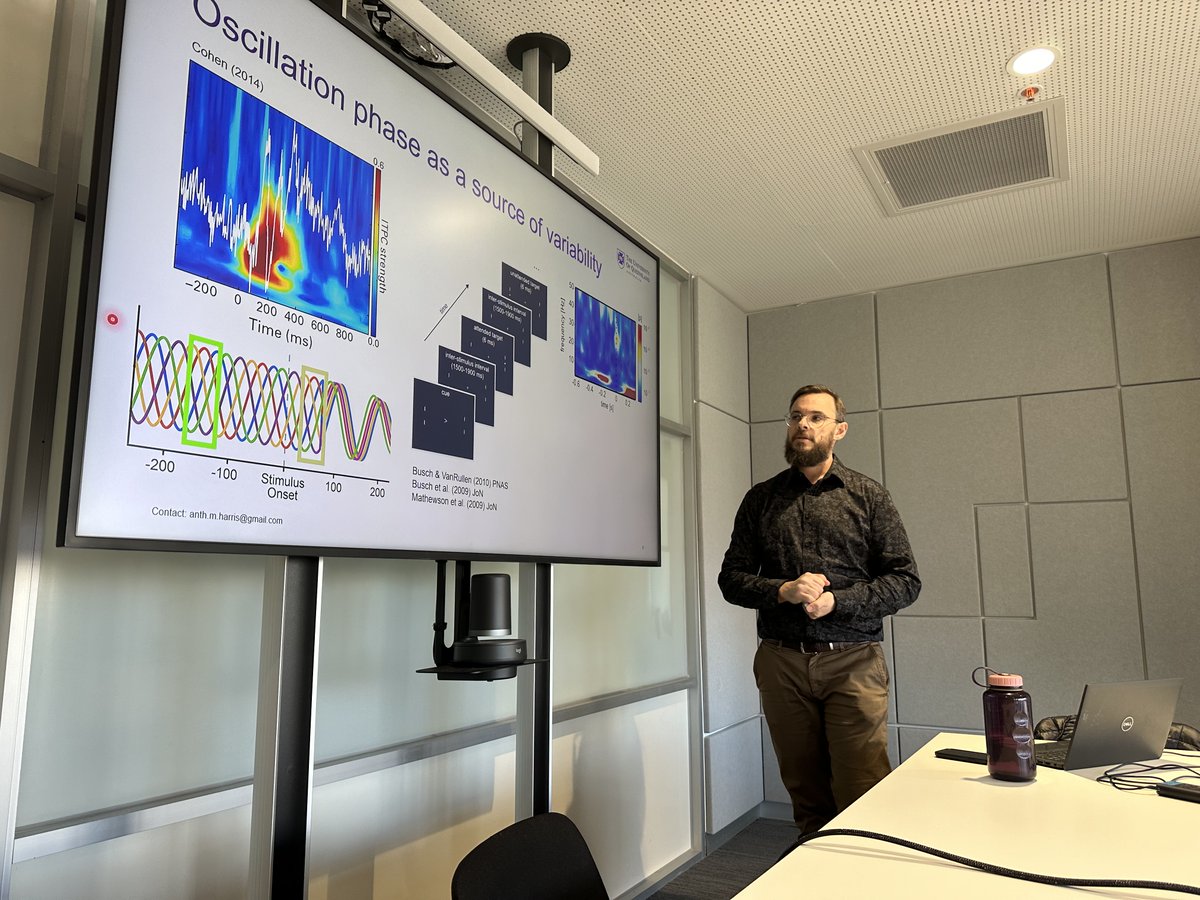
Daniel Feuerriegel
@danfeuerriegel
Head of the Prediction and Decision-Making Lab @psychunimelb. Decision-making, predictive brains, computational neuroscience, EEG, machine learning. He/him
ID: 934027743179636736
https://psychologicalsciences.unimelb.edu.au/research/msps-research-groups/padma/lab#welcome 24-11-2017 11:55:42
1,1K Tweet
981 Followers
833 Following





Great commentary by Morgan Fitzgerald, Eena Kosik-Rose, and Brad Voytek on @schmidtfa1's work studying the complex relationship between cardiac and M/EEG signals in aging.🙏 elifesciences.org/articles/102878 Department of Psychology, Univ. Salzburg @PLUS_1622


New results from the lab in collaboration with Alex Maier and Allen Institute via #OpenScope: x.com/biorxiv_neursc… We tested key hypotheses made by popular Predictive Coding (PC) theories with Multi-Area, High-Density Laminar Neurophysiology (MaDeLaNe) in mice and monkeys.

André M. Bastos Allen Institute Also, we have been collectively thinking about next steps for a while now. Everybody can contribute to our brain storming here : docs.google.com/document/d/1g-…

New results on how gamma/beta oscillations, spiking, and Predictive Routing are disrupted in unconsciousness! Incredible coincidence: The study was published in PNAS as first-author Sophy Yihan Xiong presents the work at #sfn24 poster F7! Come by and learn more! pnas.org/doi/10.1073/pn…


Finally! This is the version of record; it's also the version to read, thanks to the review process at eLife. The finding was out of reach before macaque Neuropixels. eLife - the journal: Direct observation of the neural computations underlying a single decision doi.org/10.7554/eLife.…

Yang Xiang has a new paper with me and Kevin Dorst showing that you don't find a gambler's fallacy in probability judgments (by you do in point predictions): osf.io/preprints/psya… This dissociation suggests that the gambler's fallacy doesn't arise from probabilistic reasoning.

Thank you so much Adam Lowet and @naoshigeuchida for writing such a thoughtful review of our paper! sciencedirect.com/science/articl…

Happy to see this paper finally out now in PBR! Psychonomic Society In it we ask whether statistical learning can occur for unattended items: it is already well known that learning can alter attention, but does attention also alter learning? rdcu.be/dY7L3


Visceral afferent training in action -- a follow up to Daniel Feuerriegel Jonathan E. Robinson Dr. Kelsey Perrykkad & my 2023 PPS paper -- out now in Developmental Review


New preprint from the lab! We used EEG⚡🧠 to map how 12 different food attributes are represented in the brain. 🍎🥦🥪🍙🍮 biorxiv.org/content/10.110… Led by Violet Chae in collaboration with Dr. Tijl Grootswagers and Stefan Bode



![Olaf Dimigen (@olafdimigen) on Twitter photo Are you looking for a precise monitor for vision science, eye-tracking, or EEG? In a new preprint, we tested an interesting new display option with excellent timing performance: "High-speed" organic light-emitting diode (OLED) monitors. A summary:🧵[1/n] Are you looking for a precise monitor for vision science, eye-tracking, or EEG? In a new preprint, we tested an interesting new display option with excellent timing performance: "High-speed" organic light-emitting diode (OLED) monitors. A summary:🧵[1/n]](https://pbs.twimg.com/media/GZDLboPWAAAL0Kj.jpg)